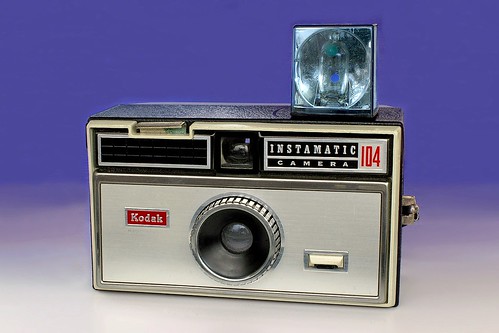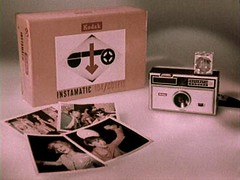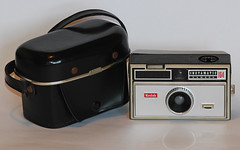Difference between revisions of "Kodak Instamatic 104"
(pool membership, attribution, rights. Noted 1 problem pic—invited) |
m (→Gallery: pic pool CP -> CW) |
||
| Line 35: | Line 35: | ||
|image_right=with permission | |image_right=with permission | ||
}} | }} | ||
| − | |||
{{Flickr_image | {{Flickr_image | ||
| − | |image_source= http://www.flickr.com/photos/holguin/410671094/in/pool- | + | |image_source= http://www.flickr.com/photos/holguin/410671094/in/pool-camerawiki |
|image= http://farm1.static.flickr.com/156/410671094_e8231906ef_m.jpg | |image= http://farm1.static.flickr.com/156/410671094_e8231906ef_m.jpg | ||
|image_align= left | |image_align= left | ||
| Line 52: | Line 51: | ||
}} | }} | ||
{{br}} | {{br}} | ||
| + | |||
== Links == | == Links == | ||
*[http://www.pbase.com/cameras/kodak/instamatic_104 camera and sample images] | *[http://www.pbase.com/cameras/kodak/instamatic_104 camera and sample images] | ||
Revision as of 15:49, 1 May 2011

|
| With flashcube attached image by Kenneth Dwain Harrelson (Image rights) |
Kodak's greatest success in camera history was the Instamatic camera series for its 126 film cartridge. Sixty million such cameras were sold by Kodak alone, mostly in the 1960s and 1970s. And of course the simplest models of the series were probably the ones which boosted Kodak's sales statistics the most. The 104 featured a connector for the new flashcube, instead of the Instamatic 100's holder for single flashbulbs. When cocked for the next exposure, the camera turns the flashcube 90 degrees to bring the next flashbulb into position. The cube can be detached by pressing the button on the front of the camera.
The camera was produced by Eastman Kodak Co. in the U.S., and also by Kodak's overseas plants, for example Kodak AG in Germany, Kodak Ltd. in England, and even by a Kodak plant in Australia.
Specifications
- Type: viewfinder film camera
- Manufacturer: Kodak
- Year of launch: 1965
- Film: 126 film cartridge
- Lens: 1:11/43mm
- Shutter: mechanical leaf, with speeds of 1/90 sec. and (with flashcube attached) 1/40 sec.
- Price: $15.95
Gallery

|
| Vintage advertising image image by Kenneth Dwain Harrelson |

|
| With case image by capitan-patata |

|
| A pair of 104's image by Adam Frame (Image rights) |
Links
- camera and sample images
- Camera and User manual on www.collection-appareils.fr by Sylvain Halgand